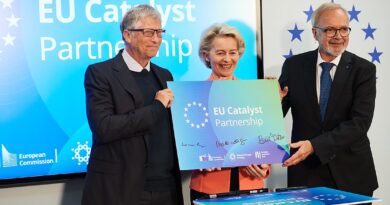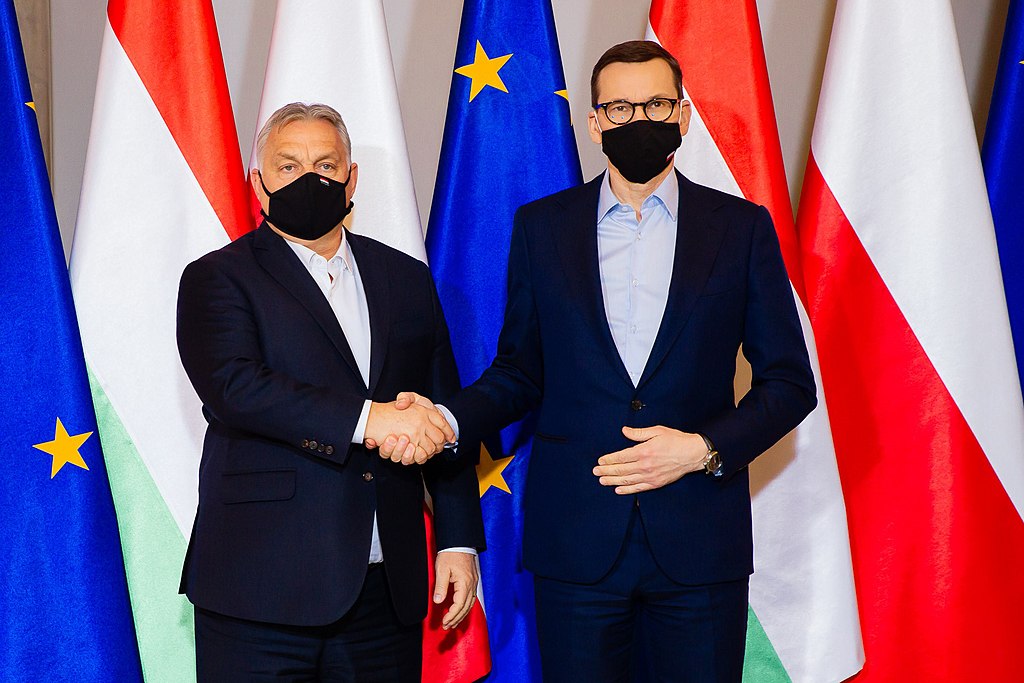Heading towards global tyranny: censorship is always the starting point (Part 1)

Ryszard Gromadzki is speaking with advocate Jerzy Kwaśniewski, President of the Ordo Iuris Institute for Legal Culture.
RYSZARD GROMADZKI: In the midst of the Russian aggression against Ukraine, work is underway in the United Nations and other global bodies to adopt the so-called pandemic treaty. This legal act is to delegate the management of the fight against future pandemics to the World Health Organization (WHO), which would gain a decision-making monopoly in this area. What consequences for states and societies will be associated with the adoption of the treaty?
ADV. JERZY KWAŚNIEWSKI: These activities should be viewed from the perspective of the long-lasting process of internationalization of law. A process that was diagnosed by international law authorities such as Ronald Dworkin or Jürgen Habermas, who, although represented a liberal vision of law, warned against such a model, in particular against its democratic deficit. We are dealing with the transfer of powers to international bodies and organizations which do not have democratic legitimacy and which try to give the impression of being technocratic. But we know very well that they are headed by people who are not scientists, but politicians. Behind them are global political forces or NGOs funded by multi-millionaires like Gates. The expansion of the powers of international organizations comes at the expense of state sovereignty. Increasingly, this process takes place without the express consent of states, on the basis of reinterpretations of international treaties. This can be clearly seen in the example of the European Union and the case law of the CJEU. On a global level, this process is most advanced in two areas. The first is international investment law, the World Trade Organization, and a great many international transaction treaties. The second area where the pandemic has accelerated is international health and the World Health Organization. And it is the latter area that has a much greater impact on the daily life and health of all people. The proposed “pandemic treaty” is the fruit of this long process. It is not something extraordinary. It is something that has been conceived for years.
The time of the coronavirus pandemic saw a huge increase in the importance of the World Health Organization.
Of course. The first leap increase in the importance of WHO was already in 2005, i.e. the introduction of the International Health Regulations – a single document describing ways of responding to diseases and information exchange. The regulations of 2005 gave the WHO “soft” instruments to hold 194 countries of the world accountable for compliance with the global health policy. Today we are on the verge of a new breakthrough. After the experience of the pandemic, the concept of an international treaty emerged, under which the WHO would receive even wider powers to dictate the standards of health and sanitary policy to the whole world. This is another transfer of national decision-making and sovereignty to officials of the World Health Organization.
If such a scenario comes true, it will not be individual governments but the WHO that will decide on compulsory vaccinations, vaccine passports, or the level of restrictions?
Vaccination, lockdowns, employment policies, and sanitary policy instruments managed by WHO would be given a higher rank with the treaty, restricting the jurisdiction of states even further. For now, we only know the disturbing announcements and the first reports of the intergovernmental group writing the draft “pandemic treaty”. The WHO, the European Council, the US Department of State still declare that the document will be created “transparently and clearly” with care for “inclusiveness, justice, equality”. At the same time, we do not know what specific provisions of the treaty are being negotiated. All we know is that it has some specific goals, including pandemic preparedness to meet “the global health needs of this millennium”. In the disclosed working documents, the term “global health system” and the principle of “one health” appear, according to which the World Health Organization is to deal not only with human health, but also with the health of all living nature on Earth.
This fits in with some pantheistic idée fixe. Listening to the demands of the circles pushing for a “pandemic treaty” or building a universal digital identity system based on the so-called vaccine passports, it’s hard to disagree with those who say that a global sanitary tyranny is being born before our eyes.
Yes of course. There are disturbing declarations under various noble slogans, such as equality in access to medicines, strengthening international health protection or the exchange of information on new disease entities. The treaty aims to provide “structural solutions to promote government-wide and community-wide preparedness for a pandemic response”. It is essential to equip the WHO with global “rapid response” instruments. At the same time, the budget of the World Health Organization is supposed to increase several times. WHO officials are to be equipped with as yet undefined powers to fight disinformation. Putting these scattered announcements together, we see the desire to equip the WHO with binding powers to impose solutions on individual countries that, in the arbitrary judgment of WHO officials, are to effectively combat future pandemics. Outside of pandemic periods, the same powers will serve to prepare countries and societies for new threats. It is a permanent state of emergency.
After all, during the coronavirus pandemic it announced, the WHO repeatedly embarrassed itself, recommending solutions that quickly turned out to be completely ineffective. Countries that broke with the WHO-imposed pandemic patterns, such as the Scandinavian countries, fared better.
Certainly. To make global coordination ineffective, elementary management knowledge is enough. The larger the organisms, the more there is a need for multi-faceted management, solutions that will compete with each other. In the field of international law, this principle is self-evident. Despite this, over the last 100 years we have seen an unequivocal tendency towards unification, the so-called world management. Moreover, on the example of the last two, and soon three pandemic years, we can see that it was this different approach that made it possible to negatively verify the activities of the World Health Organization. I often cite the example of WHO’s regional representative for Europe, who recommended the closure of schools in 2020. Later it turned out that there was no reliable research behind it. It was his hunch, developed somewhere during a meeting of internal WHO bodies. A year and a half later, the same WHO officially admitted that school closings are not stopping the spread of the pandemic. During this time, millions of children around the world were confined to their homes, with tragic consequences for their psyche, confirmed by already available studies.
(…)
This interview was published in March 2022 in “Do Rzeczy” weekly.



